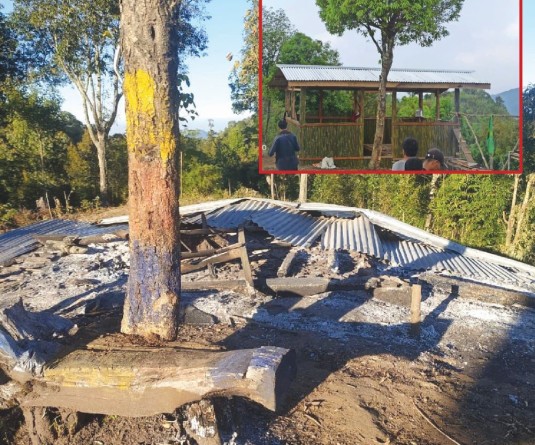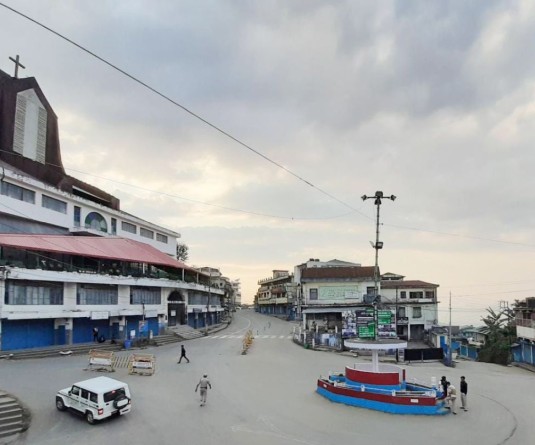
Newmai News Network
Kohima | June 1
EXPERTS HAVE POINTED out loopholes in the landslide hazard control policy in Nagaland stating that the state is vulnerable to landslides with 88 per cent of the total area facing stability problems.
According to the numerous reports published in Nagaland based newspapers, the policy is unregulated and lacks coordination posing a grave threat to the fragile ecosystem. The experts have expressed at a two-day programme on ‘Management of landslides in North-East India’ organised by the department of Geology, Nagaland University, Kohima, and sponsored by the Union Ministry of Science and Technology recently.
The experts assembled at the two-day session mainly focused on the issue of landslides occurring in the North-East due to adverse geomorphic and geological conditions such as heavy and prolonged rainfall, indiscriminate cutting of trees/hills for jhum/terrace cultivation and unplanned development. They said that the “faulty” landslide hazard control policy in Nagaland was resulting in loss of life and property in the state besides modifying the existing landscape, and that a lot of money had to be spent for rehabilitation and repair of roads and other means of communication because of landslips.
A joint scientific approach involving all interrelated multi-disciplines is essential to control landslide-related hazards in Nagaland, expressed K Arhomo Lotha, a delegate from the directorate of Geology and Mining, Dimapur, adding that the problem has to be tackled from the grassroots level through mass participation and financial resources from the government.
He further stated that economical and eco-friendly measures should be adopted to control landslides and minimise the damage. He stressed on the need to set up a statutory and regulatory landslide control body to be constituted on a par with other existing boards for overall mitigation, formulation and supervision of landslide-related work.
It has become imperative to sit down and discuss strategies to tackle the menace of landslide in Assam, Arunachal Pradesh, Meghalaya, Manipur, Mizoram, Sikkim and Nagaland during the monsoon, asserted Glenn T Thong, from the department of Geology, Nagaland University.
T N Singh from IIT Mumbai said that people should think of minimising the magnitude of damage to the environment in view of the grave consequences. He added that it was the duty of humans to protect the environment.
It may be mentioned here that every year during the rainy season, landslides play havoc in Nagaland and the other North-East states causing loss to life and property, disrupting the transport and communication network and bringing misery and suffering to the people. In spite of the problems caused every year, no worthwhile long-term plan has been formulated or implemented in any of the North-East states affected by landslides.






